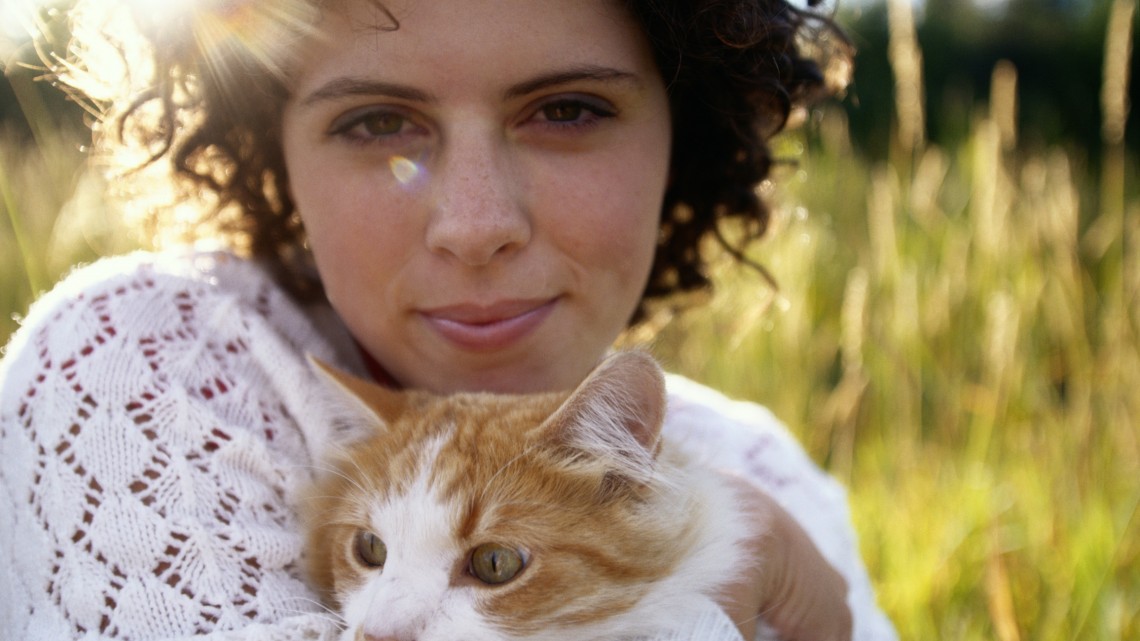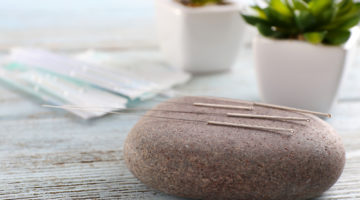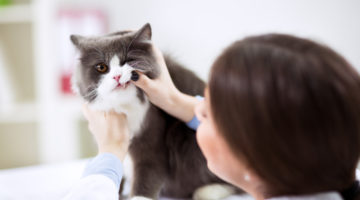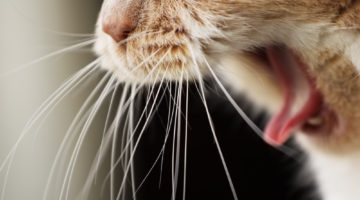Your senior cat is a special treasure. A healthy lifestyle will keep her well and happy for many more years to come.
Many of us share our lives with senior cats. These wise and oh-so-comfortable companions are our longtime friends, confidants and family. We want them with us as long as possible, and that means understanding their needs as they become “golden oldies”.
The natural lifespan of the cat can easily exceed two decades. This surprises some people, who might consider a cat in her early teens to be elderly. While proper care of the younger cat means she’ll enjoy better condition when she’s older, it’s never too late to take steps to help ensure a senior feline’s health and longevity.
Food for the Geriatric Cat
The keystone of long life is diet. Contrary to common belief, cats should not eat all dry diets. Because cats are true carnivores, they require much higher quantities of meat in their diets than dogs. Meat provides much-needed high quality protein and a variety of other essential nutrients. Commercial dry foods are low in high quality protein and are meat- nutrient deficient. They also provide too much highly processed carbohydrate. Poor quality commercial dry foods are made using the same technology that pro- duces breakfast cereal and high carbohydrate snack foods for people. This process requires very large amounts of starchy vegetables or cereal to form the “popped” kibble. These high levels of processed carbohydrates can place stress on the feline pancreas and lead to diabetes. They also contribute to obesity in the middle- aged and older cat.
Many people believe that the geriatric cat needs a “protein-restricted” diet that is lower in meat. This is largely myth, unfounded by scientific research. Like her younger counterpart, the older cat needs plenty of high quality meat protein, and can suffer nutrient deficiency if fed restricted protein diets.
What about vaccinations? Today, veterinarians know that cats do not need annual vaccinations for every possible disease. This is especially true of indoor cats, in which the risk of exposure to infec- tious diseases is low compared to the risk of vaccination- associated reactions. The majority of cats vaccinated for the most common viral diseases have good immunity against those diseases without annual revaccination.
Repeated vaccination of older cats can lead to serious side effects, such as vaccine-associated cancers, abscesses and immune system-related diseases. Discuss with your veterinarian the risks versus the benefits of continued vaccination. You and your vet may decide to discontinue this practice in your older cat.
Three “old age diseases”
1Hyperthyroidism is the single most important disease in feline geriatrics. It occurs when the thyroid gland in a cat over nine years of age begins to produce excess thyroid hormone. When thyroid hormone levels rise, the cat may begin to lose weight and may vomit frequently, become irritable and even hyperactive. Some hyperthyroid cats have ravenous appetites while others seem to lose their appetites. Some hyperthyroid cats don’t sleep well, and may seem anxious.
Because this condition is so common in teenage cats, it’s important that your veterinarian perform annual thyroid hormone level checks, even if you don’t see obvious symptoms. A rising level indicates this disease is present, and prompt treatment is needed. Hyperthyroidism is treatable, even curable, if caught early enough.
2Cancer can appear in many different forms in older cats, just as it can in humans. Again, early detection gives the best possible opportunity for successful treatment and cure. Groom or stroke your feline companion frequently, noting any bumps or swellings. If you observe other physical changes, such as lack of appetite, vomiting, diarrhea, lack of energy or difficulty breathing, see your veterinarian right away. Cancers in our senior companions can be defeated, but only if you act swiftly at the first sign of danger.
Never smoke around your cat, or let others do so, no matter what her age. Smoking results in cancer-causing sub- stances (carcinogens) to be deposited on the cat’s coat. When she grooms them off, they enter the stomach and intestines, and can lead to cancer in those locations.
3Chronic kidney disease is relatively common in cats over ten years of age. The signs are excessive water drinking, excessive urination, and loss of appetite and weight. Like cancers and hyperthyroidism, kidney problems are most easy to treat when detected early. There are many approaches to feline kidney dis- ease that can stabilize the patient and provide years of high quality life after diagnosis.
The senior years of your cat’s life can be the best. The older cat is a treasure worthy of tender care and loving attention. As anyone who has lavished that love on a special elder feline can attest, it will be repaid a hundredfold in devoted companionship, trust and love.








No Comment